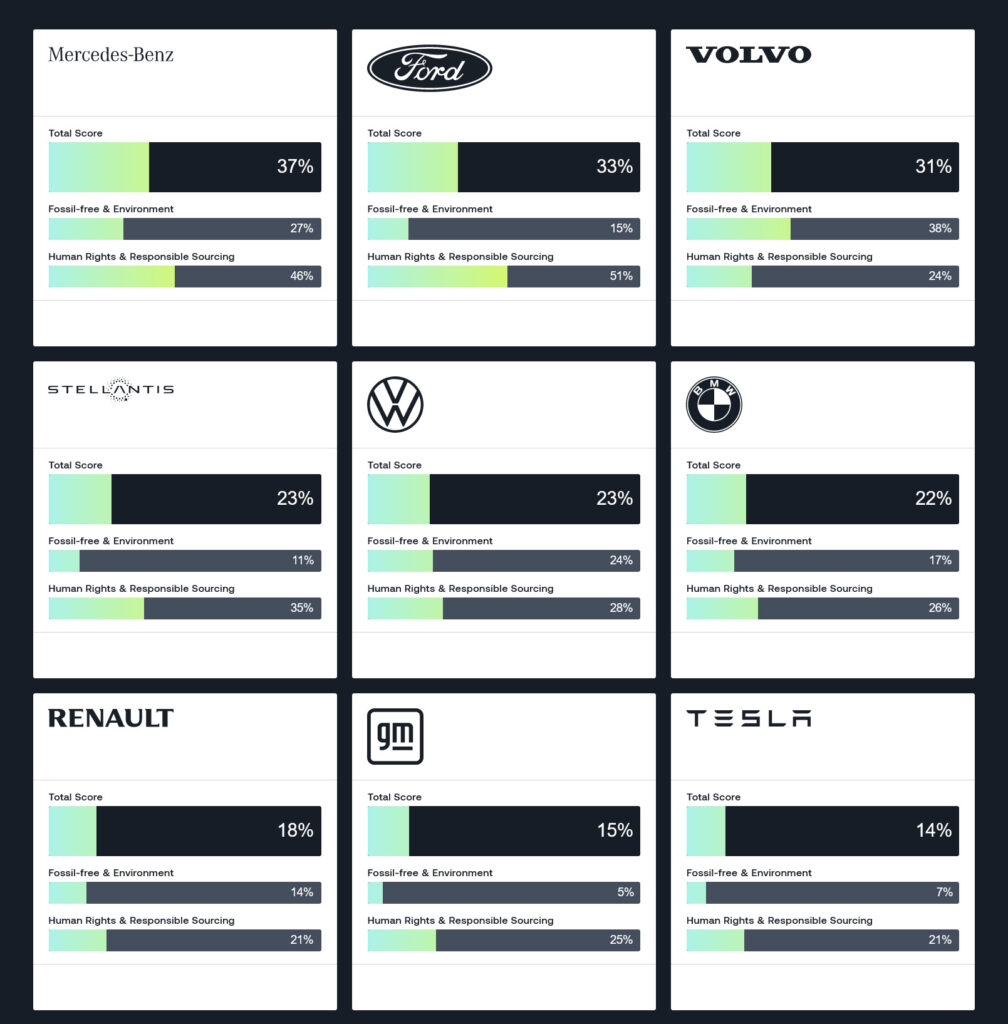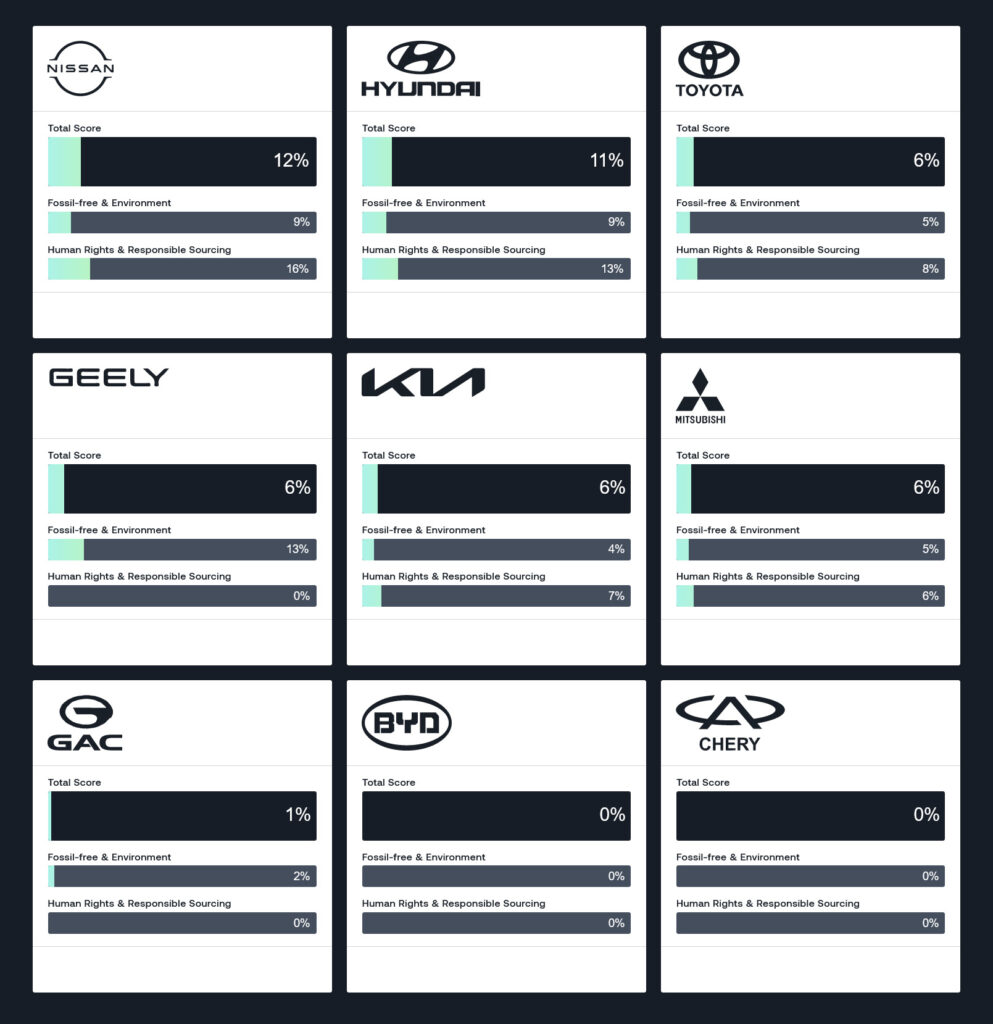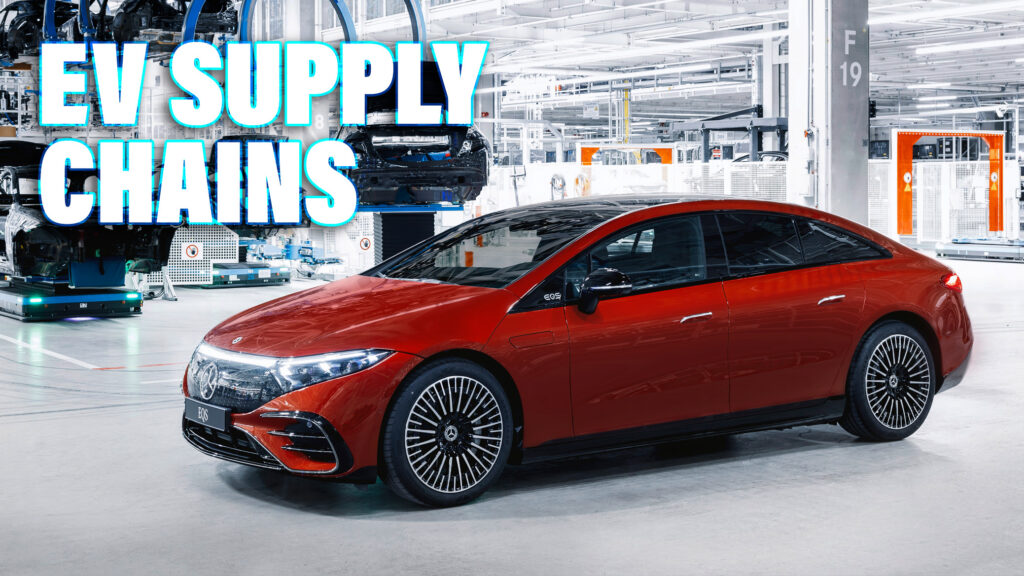Mercedes’ electric vehicle supply chain ranks well among its peers in terms of climate impact, while Tesla’s performance is middling at best, and China’s manufacturers rate poorest of all, according to a new study from Lead the Charge.
The EV supply chain scorecard was launched by a group of advocacy partners, including the Sierra Club, Transport and Environment, Investor Advocates for Social Justice, and the University of Colorado Boulder.
“The campaign encourages automakers to leverage the unprecedented opportunity offered by the electric vehicle (EV) transition to radically transform their supply chains to be equitable, sustainable, and 100% fossil free,” the university’s First People Worldwide foundation wrote in a statement. “It also raises awareness of the human and Indigenous Peoples’ rights, climate, and environmental impacts that occur throughout auto supply chains, focusing in particular on steel, aluminum, and batteries.”
Read: Mercedes To Introduce 70% Greener Aluminum Into Its Vehicles Next Year

Out of a possible 100, Mercedes got an environmental score of 37 percent according to the Lead the Change scorecard, which was designed in partnership with the Pensions & Investment Research Consultants to study automakers’ “efforts to ensure equitable, sustainable, and fossil-free supply chains,” though it looks specifically at the EV supply chain, not necessarily its ICE supply chain.
Lead the Change noted Mercedes’ efforts to reduce overall supply chain emissions with responsibly sourced steel and aluminum, its “commendable efforts” to recycle more, and its “industry-leading policies and measure for conducting effective human rights due diligence.”
The group notes, though, that the automaker is only marginally better than its competitors, including Ford and Volvo, both of which scored in the 30s. While it was one of the few automakers with an explicit commitment to respecting Indigenous Peoples’ rights, Lead the Change notes that the automotive industry does not do well in this category.
Protecting Indigenous Peoples
Galina Angarova, Executive Director of Cultural Survival, explained the urgent situation facing Indigenous Peoples in the transition to a green” economy. “In this transition, Indigenous Peoples are facing a new wave of extractivism for transition minerals such as copper, nickel, cobalt, and lithium, which are key in battery development for electric vehicles and other technologies,” she stated, adding that “Indigenous lands, territories, and resources are under direct threat as the demand for these minerals increases”.
Kate R. Finn, Executive Director of First Peoples Worldwide, emphasized the need to prioritize Indigenous rights risk for companies in the electric vehicle and new energy markets. “Currently, 54% of transition mineral projects globally are situated on or near Indigenous Peoples’ territories. In the U.S., over 97% of some metals are found within 35 miles of Reservations,” she stated.
Lead The Charge Scorecards
Tesla, Hyundai, Kia And The Rest
Elsewhere, Tesla’s grade was relatively poor, and the organization noted that it was among the “industry’s worst performer on Scope 3 emissions disclosures” and it had no science-based targets for its supply chain. The automaker does have an “excellent record” on pro-climate lobbying, though, and has concrete commitments to human rights due diligence – though its record with its own employees is pretty bad.
Hyundai and Kia performed even poorer, with Hyundai receiving a score of 9 out of 100 for climate and environmental impact, and 13 out of 100 for human rights and social responsibility, resulting in a total score of 11 percent. Meanwhile, Kia got an overall score of 6 percent. The organization noted that Hyundai “Has some workers’ rights policies, but they’re clearly deficient: reports have exposed Hyundai for child labor at suppliers and one US subsidiary, major workplace safety violations in South Korea, and it’s facing a racial discrimination lawsuit in the US”.
Faring worst of all, though, are Chery and BYD, which both scored zeros, while GAC was only marginally better with a total score of one percent, and Geely could only manage a score of six out of 100. These automakers’ bad scores are due largely to their lack of emissions disclosures and target systems, with the organization noting that “due to the lack of disclosure across the indicators measured” BYD was “one of the only automakers to score 0% across both categories”.
Lead the Change notes that Mercedes’ strong score shows that automakers can take action to improve both emissions and human rights. It is only through active effort, however, that this will be possible.






